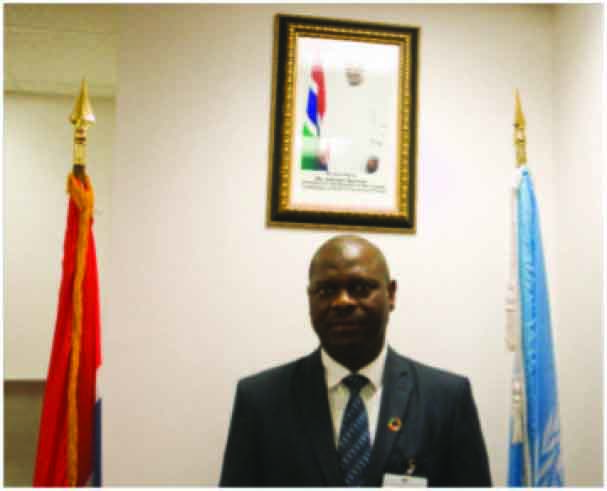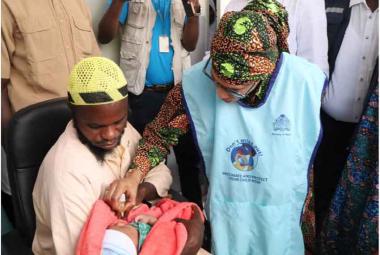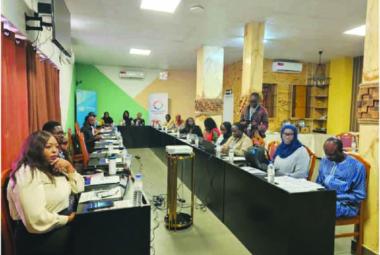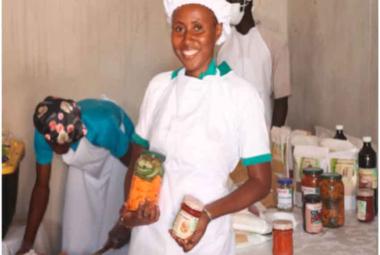By Sarjo M. Camara
Reporting from New York
The Minister of Finance and Economic Affairs, Seedy K.M. Keita, on Wednesday, 20th September 2023, participated in the United Nations’ Financing for Development meeting as part of the side events of the 78th United Nations General Assembly.
The theme of this year’s UNGA is: “Scaling up affordable and accessible international public financing for sustainable development and ensuring efficiency.”
In his statement, Minister Keita stated that the convergence of climate change and the lingering effects of COVID-19 has exacerbated food and nutrition insecurity.
“While developed countries adopted expansionary fiscal and monetary policies that enabled them to invest in recovery, many developing countries were unable to do so, due to high cost of borrowing with interest rates up to 8 times higher than developed countries,” he said.
He also indicated that to effectively address the pressing environmental and socio-economic challenges and foster resilient recovery, the Government of The Gambia has formulated a Green Recovery - Focused National Development Plan to address the challenges of climate change and accelerate sustainable development efforts.
“The Government has embarked on some innovative financing initiatives without adding on the debt stock, which include Asset Recycling, Public Private Partnership and Domestic Revenue Mobilization measures”.
The Minister re-echoed the call by the UN SG requesting the Group of Twenty (G20) to scale up affordable long-term financing for developing countries in need by at least US$500 billion a year—a transformative SDG Stimulus package, which could accelerate the implementation of the 2030 Agenda.
“We commend the G20 for setting up the DSSI in May 2020, which has helped developing countries including The Gambia to concentrate our resources on fighting the pandemic and safeguarding the lives and livelihoods of the most vulnerable. Since the initiative has expired, it has placed additional pressure on countries for paying both principal and interest on their debts,” he noted.
He also called for a fit-for-purpose global financial system, where countries are supported based on needs.
“The $650 billion in Special Drawing Rights (SDRs) allocated in 2021, developed countries received about $420 billion, or 66 per cent of the total. Meanwhile, Africa received only 5.2 per cent, or $34 billion, while LDCs received less than $17 billion, or just 2.5 per cent. This is regrettable; however, we can do better,” he observed.
On the need for debt cancellation, Hon. Keita said a number of sub-Saharan countries are spending more on debt repayment than expenditures on health and education. This, he pointed out, is compromising the needed vital human capital formation and investments in infrastructure needed for growth.
“The global financial system must be recalibrated to take into account the vulnerabilities imposed on the developing countries by the undue debt burden arising by the current financial system,” the Minister said.
He argued that the approach of the rating agencies towards the developing countries must also be revisited, adding that the developing countries are now paying more for funds raised in the international markets than developed countries with similar economic fundamentals.
Mr Keita went on to emphasise that the UN and other multilateral institutions should enhance investments on global public goods with special attention to climate change and the digital economy, so that no one is left behind.
In conclusion, he said implementing the SDGs and ending poverty will further require broader changes to the international financial architecture. This, he said, would help all to live in a world in which everyone can benefit from quality health-care, education, decent work, clean air and water and a healthy environment.







